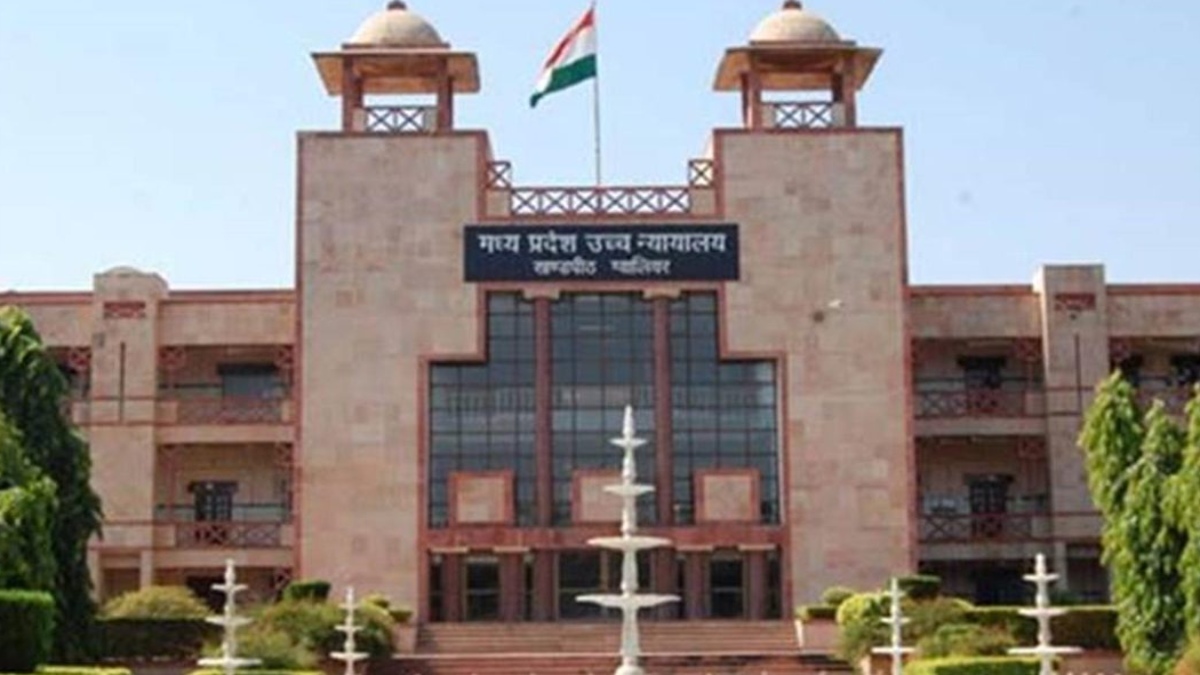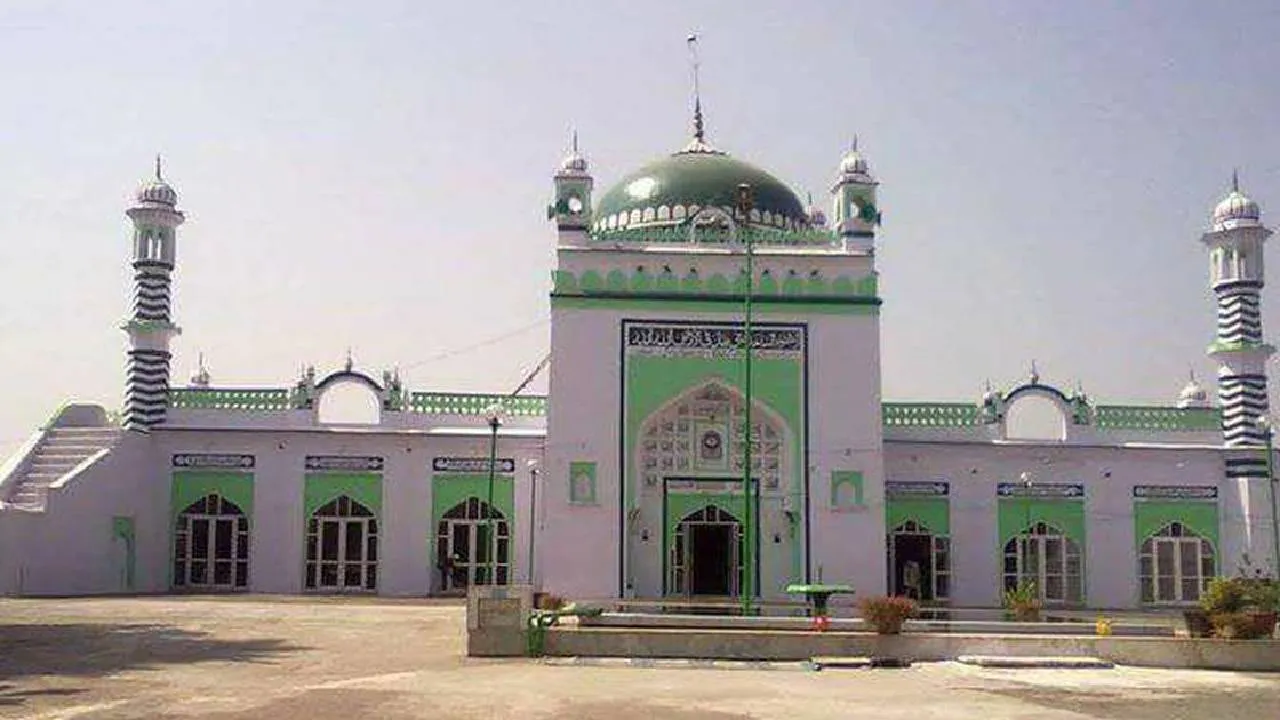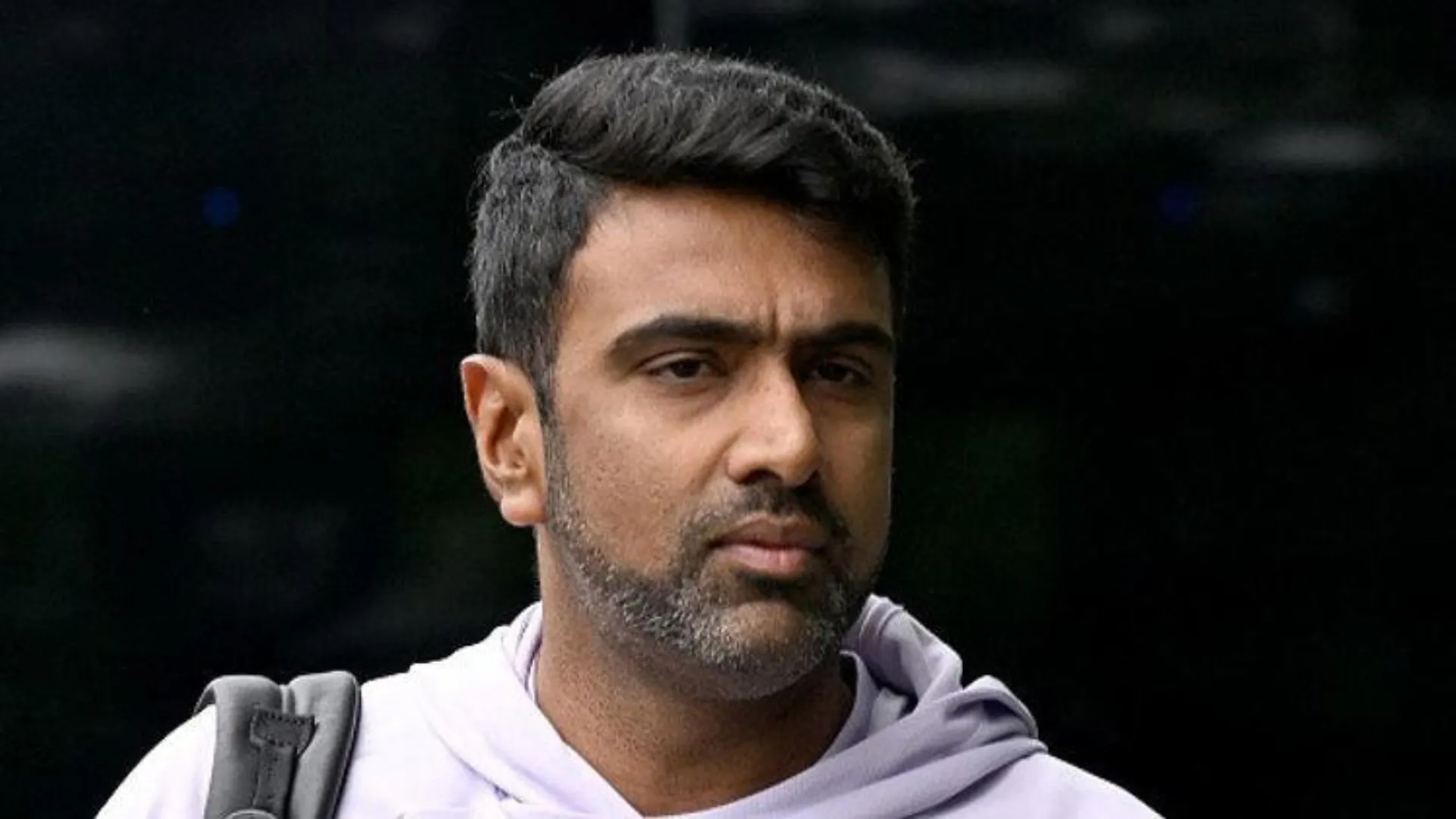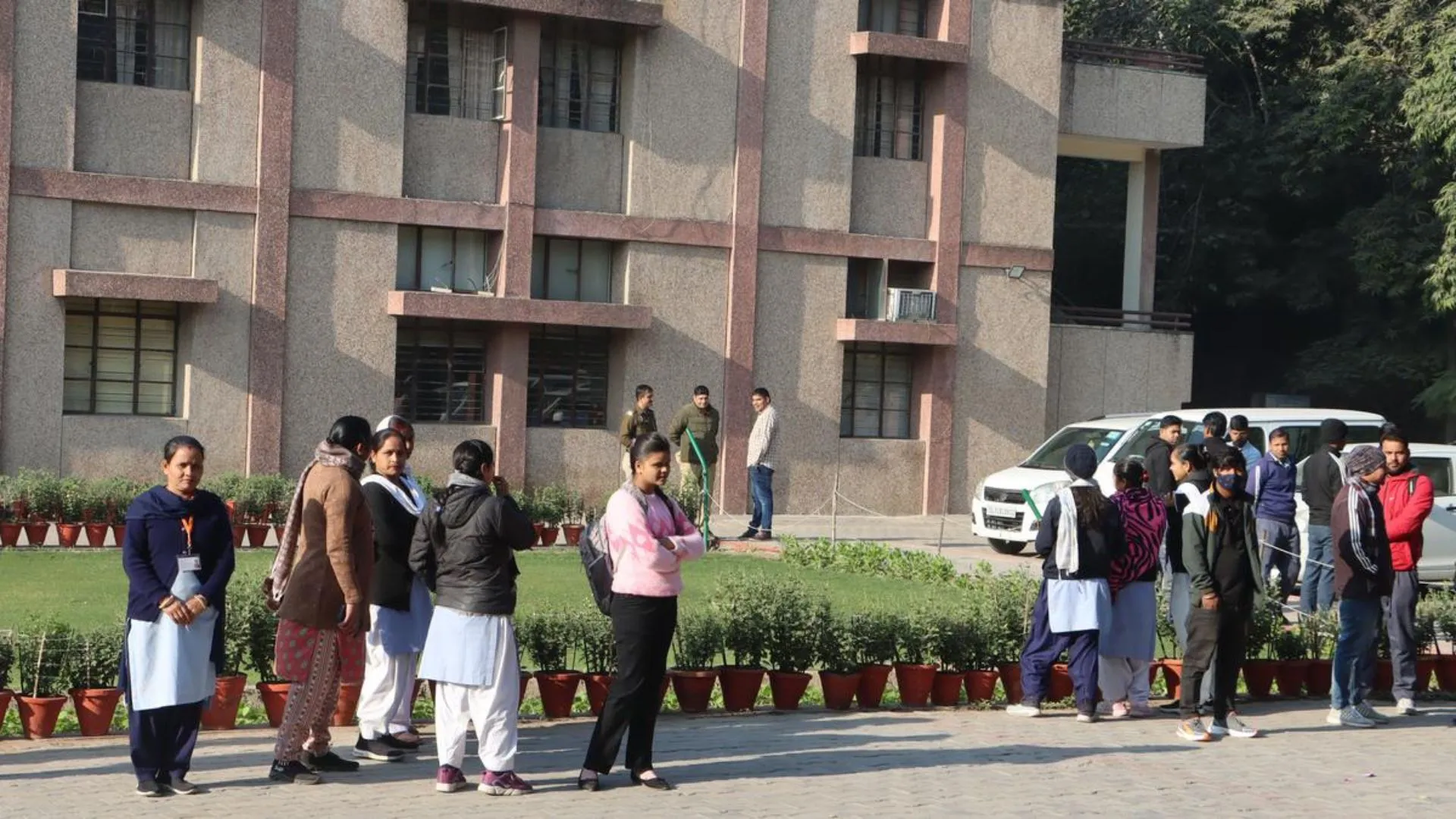In a well-written, well-articulated, well-reasoned and well-substantiated judgment titled X vs State of Madhya Pradesh and others in Writ Petition No. 12155/2021 that was delivered just recently on July 14, 2021, the Madhya Pradesh High Court has recently, rightly and remarkably observed that not permitting a rape victim, suffering from severe mental problems, to undergo Medical Termination of unwarranted pregnancy would be violative of her bodily integrity which would not only aggravate her mental trauma but would also have devastating effect on her overall health including on psychological and mental aspects. This was held so while allowing medical termination of pregnancy of 23 year old rape victim survivor whose mental age was found to be that of minor, being only 6 years. It was a Division Bench of Madhya Pradesh high Court comprising of Chief Justice Mohammad Rafiq and Justice Vijay Kumar Shukla who pronounced this brief, brilliant, bold and balanced judgment.
To start with, this latest, learned, laudable and landmark judgment authored by Chief Justice Mohammad Rafiq for himself and Justice Vijay Kumar Shukla of Madhya Pradesh High Court sets the ball rolling by first and foremost observing in para 1 that, “This writ petition has been filed by praying for a direction to the respondents to allow her daughter (hereinafter referred to as “Victim-A”) to undergo medical termination of pregnancy at the State expense. The petitioner has also challenged the constitutional validity of Section 3(2)(b) of the Medical Termination of Pregnancy Act, 1971 (for short “the MTP Act”) to the extent it stipulates a ceiling of 24 weeks for medical termination of pregnancy with the prayer the same be declared as ultra virus Article 14 and 21 of the Constitution of India. The petitioner has also challenged the order dated 6.7.2021 passed by the Third Additional Sessions Judge, Hoshangabad in MJC-R No.207/2021 rejecting application of the petitioner for permission to terminate pregnancy of Victim-A.”
While elaborating on the facts of the case, the Bench then puts forth in para 2 that, “The petitioner is resident of Village Baagratwa, Tehsil Babai, District Hoshangabad of State of Madhya Pradesh. She belongs to Scheduled Tribe community. She is wholly illiterate, living below poverty line. She does not have any moveable or immoveable property. According to the petitioner, she and her husband work as a labourer. Her daughter Victim-A is aged about 23 years and she is mentally retarded. The petitioner and her husband left their village for Ujjain for earning livelihood by doing labour work. When they returned back after some time, the petitioner found that her daughter Victim-A was behaving in a peculiar manner. Their daughter Victim-A informed them in sign language about certain stomach pain. On making further enquiry, she learnt that one of her neighbours had committed rape upon her. She immediately took her to the doctor, who found that she was pregnant. The petitioner lodged a First Information Report with the Police Station Babai. District Hoshangabad, which has been registered for offence under Section 376(2)(1) of the IPC as Crime No.301/2021. The accused was arrested on 20.6.2021. The police got Victim-A medically examined and also obtained the medical report about her mental health. Victim-A was thereafter sent for further medical examination on 22.6.2021, upon which it was confirmed that she was carrying pregnancy of 22 weeks. The petitioner immediately filed an application under Section 3 of the MTP Act on 30.6.2021 before the Judicial Magistrate First Class, Hoshangabad, seeking permission for termination of her pregnancy, who rejected the same on 2.7.2021. Since 3 rd and 4th July, 2021, being Saturday and Sunday, were holidays, the petitioner filed application under Section 3 of the MTP Act with the same prayer before the Third Additional Sessions Judge, Hoshangabad on 5.7.2021, which was registered as MJC-R No.207/2021. The same was however rejected on the very next working day i.e. 6.7.2021 under the ignorance about the latest law whereby maximum length of pregnancy under Section 3(2)(b) of the Act, which was earlier 20 weeks, was raised to 24 weeks by amendment to that effect by the Act 8 of 2021 published in the Gazette of Government of India on 25.3.2021.”
To be sure, the Bench then after observing in para 7 that, “We have given our anxious consideration to rival submissions, perused the material on record and studied the cited precedents.” then goes on to hold in para 8 that, “A perusal of the afore-quoted opinion of the Medical Board in condition no.1 indicates that the survivor is a case of severe mental retardation with behavioral problems. Mental age of the survivor is approximately 6 years. She is unable to take care of herself and therefore, obviously she will not be in a position to take care of the baby, if she delivers the one. In conclusion no.2 of the aforesaid opinion of the Medical Board, the victim-A is opined to be a single live intrauterine fetus of gestational age by USG is 25 week 5 days +/- 2 weeks with the possibility of age being either less or more by 2 weeks, which is indicated by “+/- of 2 weeks”. This is also the opinion given by the Radiologist. We have to therefore now examine whether in the facts like these, this Court would be justified in refusing to grant permission for medical termination of the pregnancy on the law available on the subject.”
It would be instructive to mention here that the Bench then points out in para 9 that, “Section 3 of the MTP Act is relevant for the purpose of deciding the present case, which reads as under:-
“Section 3. When pregnancies may be terminated by registered medical practitioners.-
(1) Notwithstanding anything contained in the Indian Penal Code (45 of 1860), a registered medical practitioner shall not be guilty of any offence under that Code or under any other law for the time being in force, if any pregnancy is terminated by him in accordance with the provisions of this Act.
(2) Subject to the provisions of sub-section (4), a pregnancy may be terminated by a registered medical practitioner,-
(a) where the length of the pregnancy does not exceed twenty weeks, if such medical practitioner is, or
(b) where the length of the pregnancy exceeds twenty weeks but does not exceed twenty-four weeks, in case of such category of woman as may be prescribed by rules made under this Act, if not less than two registered medical practitioners are of the opinion, formed in good faith, that,-
(i) the continuance of the pregnancy would involve a risk to the life of the pregnant woman or of grave injury to her physical or mental health ; or
(ii) there is a substantial risk that if the child were born, it would suffer from any serious physical or mental abnormality.
Explanation 1.- For the purposes of Clause (a), where any pregnancy occurs as a result of failure of any device or method used by any woman or her partner for the purpose of limiting the number of children or preventing pregnancy, the anguish caused by such pregnancy may be presumed to constitute a grave injury to the mental health of the pregnant woman. Explanation 2.- For the purposes of Clause (a) and (b), where any pregnancy is alleged by the pregnant woman to have been caused by rape, the anguish caused by the pregnancy shall be presumed to constitute a grave injury to the mental health of the pregnant woman.
(2-A) The norms for the registered medical practitioner whose opinion is required for termination of pregnancy at different gestational age shall be such as may be prescribed by rules made under this Act.
(2-B) The provisions of sub-section (2) relating to the length of the pregnancy shall not apply to the termination of pregnancy by the medical practitioner where such termination is necessitated by the diagnosis of any of the substantial foetal abnormalities diagnosed by a Medical Board.
(2-C) Every State Government or Union territory, as the case may be, shall by notification in the official Gazette, constitute a Board to be called a Medical Board for the purposes of this Act to exercise such powers and functions as may be prescribed by rules made under this Act.
(2-D) The Medical Board shall consist of the following, namely-
(a) a Gynaecologist;
(b) a Paediatrician
(c) a Radiologist or Sonologist; and
(d) Such other number of members as may be notified in the Official Gazette by the State Government or Union Territory, as the case may be.
(3) In determining whether the continuance of pregnancy would involve such risk of injury to the health as is mentioned in sub-section (2), account may be taken of the pregnant woman’s actual or reasonably foreseeable environment.
(4) (a) No pregnancy of a woman, who has not attained the age of eighteen years, or, who, having attained the age of eighteen years, is a mentally ill person, shall be terminated except with the consent in writing of her guardian.
(b) Save as otherwise provided in clause (a), no pregnancy shall be terminated except with the consent of the pregnant woman.””
Please read concluding on link4din.com/guardians-numeric-wisdom
Be it noted, the Bench then found it quite strange as is mentioned in para 10 that, “It is indeed surprising that the Third Additional Sessions Judge, Hoshangabad relied on unamended Section 3 of the MTP Act rather than considering the amended provision, which has now increased the permissible outer limit for termination of pregnancy from 20 weeks to 24 weeks. This means that if the law was correctly read and applied by him, the permission of medical termination of the pregnancy could have been granted as the period of 24 weeks had yet not passed on the date the said Court was approached. Be that as may be, Section 3(2)(b), which is relevant for deciding the medical termination of pregnancy, inter alia provides that subject to the provisions of sub-section (4), a pregnancy may be terminated by a registered medical practitioner where the length of the pregnancy exceeds twenty weeks but does not exceed twenty-four weeks in case of such category of woman as may be prescribed by rules made under this Act, if not less than two registered medical practitioners are of the opinion, formed in good faith that; (i) the continuance of the pregnancy would involve a risk to the life of the pregnant woman or of grave injury to her physical or mental health; or (ii) there is a substantial risk that if the child were born, it would suffer from any serious physical or mental abnormality. The first Explanation thereto relates to Clause (a), which provides that where any pregnancy occurs as a result of failure of any device or method used by any woman or her partner for the purpose of limiting the number of children or preventing pregnancy, the anguish caused by such pregnancy may be presumed to constitute a grave injury to the mental health of the pregnant woman. This Explanation may not be relevant for deciding the present case, but the second Explanation of Section 3(2) would in the facts of the present case have bearing on the interpretation of Section 3(2)(i) of the MTP Act, which stipulates that where any pregnancy is alleged by the pregnant woman to have been caused by rape, the anguish caused by the pregnancy shall be presumed to constitute a grave injury to the mental health of the pregnant woman. (emphasis supplied).”
To put things in perspective, the Bench then envisages in para 11 that, “Admittedly, in the present case, the Victim-A, daughter of the petitioner, was subjected to rape and according to experts, her mental age is only 6 years and therefore, regardless of her biological age, the consent for sexual intercourse in her case would be irrelevant. The First Information Report was lodged by her mother for the offence of Section 376(2)(1) of the IPC against the accused with the Police Station Babai, District Hoshangabad in Crime No.301/2021. This therefore would bring the case of her daughter within the purview of Explanation (2) which provides that the anguish caused by the pregnancy shall be presumed to constitute a grave injury to the mental health of the pregnant woman, who in this case is Victim-A. Moreover, what is peculiar about this case is that the Medical Board itself has opined that duration of pregnancy is variable by two weeks. The victim is unable to take care of self, her hygiene is poor, her intellectual abilities are poor, her mental age is only 6 years and therefore, obviously she will not be in a position to take care of the baby, even if she delivers it.”
As it turned out, the Bench then observes in para 12 that, “This Court is cognizant of the fact that the Victim-A is mentally retarded, and her mental age having been adjudged by the experts to be only 6 years, therefore, all the steps on her behalf could be and were in fact taken by her mother, who is her natural guardian. She immediately filed an application before the Court of JMFC, Hoshangabad on 30.6.2021 which was rejected on 2.7.2021 and thereafter, immediately on the very first next working day i.e. on 5.7.2021, she filed the application before the Third Additional Sessions Judge, who being ignorant of the amended provision, which came into effect from 25.3.2021, rejected the same under the misconception that the outer limit for grant of permission of medical termination of pregnancy was 20 weeks and not 24 weeks. Sub-section (4) of Section 3 requires consent of the guardian of a minor, or a major who is mentally ill person. The exceptions to this rule of consent have been given in Section 3(4)(a) of the MTP Act, which provides that when the pregnant woman is below eighteen years of age or is a “mentally ill” person, then consent of her guardian would have to be obtained. Since in the present case the mental age of the Victim-A was determined approximately 6 years, her pregnancy can be medically terminated with the consent of the guardian who is actually natural mother of Victim-A. The permission/consent has to be therefore necessarily assumed.”
While citing the relevant case laws, the Bench then observes in para 13 that, “In Murugan Nayakkar (supra), the petitioner, who was 13 years of age, was a victim of alleged rape and sexual abuse. She preferred a writ petition for termination of her pregnancy. The Medical Board opined that termination of pregnancy at this stage or delivery at term will both have equal risk to the mother. The Supreme Court held that considering the age of the petitioner, trauma which she prima facie suffered due to sexual abuse and the agony she is going through at the present, it would be appropriate to allow termination of pregnancy. In Tapasya Umesh Pisal Vs. Union of India and others (supra), the victim, who was 24 years old, was seeking permission to undergo medical termination of the pregnancy, which had progressed to 24 weeks. The Supreme Court held that it is difficult to refuse the permission to the petitioner to undergo medical termination of pregnancy as it is certain that if the foetus is allowed to be born it would have a limited life span with serious handicaps which cannot be avoided. In Kalpana Singh vs. Government of NCT of Delhi & others (supra), the victim had pregnancy of 25 weeks and 5 days, which was permitted to be terminated medically.”
Adding more to it, the Bench then while citing a landmark case observes in para 14 that, “The Supreme Court in Suchita Srivastava and Another Vs. Chandigarh Administration reported in (2009) 9 SCC 1, held that there is no doubt that a woman’s right to make reproductive choices is also a dimension of “personal liberty” as understood under Article 21 of the Constitution of India. Reproductive rights include a woman’s entitlement to carry pregnancy to its full term, to give birth and to subsequently raise children. However, in the case of pregnant women, there is also a “compelling State interest” in protecting the life of the prospective child. Therefore, the termination of a pregnancy is only permitted when the conditions specified in the applicable statute have been fulfilled. Hence the provisions of the MTP Act, 1971 can also be viewed as reasonable restrictions that have been placed on the exercise of reproductive choices. The Lordship further held that ordinarily a pregnancy can be terminated only when a medical practitioner is satisfied that a “continuance of the pregnancy would involve a risk to the life of the pregnant woman or of grave injury to her physical or mental health”. The Explanations to Section 3 however also contemplate termination of pregnancy when the same is the result of a rape or a failure of birth control methods since both of these eventualities have been equated with a “grave injury to the mental health” of a woman.”
Furthermore, the Bench then observes in para 15 that, “This Court in Writ Petition No.20961/2017-Sundarlal Vs. The State of M.P. & others, decided on 6.12.2017, was dealing with the case of minor daughter of the petitioner, who was kidnapped and a First Information Report at his instance was registered under Sections 363, 366, 376 of the IPC read with Section 4 and 6 of the Protection of Children From Sexual Offences Act, 2012 against the accused. The police secured the custody of the minor daughter of the petitioner, who was handed over to the petitioner. On medical examination, she was found to be carrying pregnancy of about 16 weeks. The petitioner being guardian gave consent for termination of the pregnancy of his minor daughter. This Court while directing constitution of a committee of three medical practitioners to form bonafide opinion as to termination of pregnancy and retention of DNA sample of fetus and providing all medical assistance and care to the victim observed as under:-
“12. In Explanation I, the law makers made it clear that where pregnancy is alleged by victim because of rape, a presumption can be drawn that such pregnancy constitute a grave injury to the mental health of pregnant woman. In the present case, this is not in dispute that victim is a minor and petitioner is praying for termination of pregnancy because her daughter is a rape victim. This court in Hallo Bi (supra) (Hallo Bi @ Halima Vs. State of M.P. & others 2013 (1) MPHT 451) opined that we cannot force a victim of violent rape/forced sex to give birth to a child of a rapist. The anguish and the humiliation which the victim is suffering daily, will certainly cause a grave injury to her mental health. Not only this, the child will also suffer mental anguish in case the lady gives birth to a child.””
Going ahead, the Bench then observes in para 16 that, “The Rajasthan High Court in Victim (A) Vs. State of Rajasthan & others, S.B.Criminal Writ Petition No.148/2020, decided on 26.2.2020, was dealing with the case where the Medical Board had opined the age of the fetus to be 23 +/- 2 weeks. Relying on the decision of the Supreme Court in Meera Santosh Pal & others Vs. Union of India & others (2017) 3 SCC 462, where permission was granted for termination of pregnancy of a term of 24 weeks and another judgment of the same High Court in Nisha Vaishnav Vs. State of Rajasthan S.B. Civil Writ Petition No.1271/2019, decided on 29.1.2019, the High Court allowed termination of pregnancy, in view of aforesaid Explanation (2) to Section 3(2) of the MTP Act as it was a case where a minor victim was subjected to rape and held that anguish caused by such pregnancy shall be presumed to constitute a grave injury to the mental health of the petitioner.”
As we see, the Bench then observes in para 17 that, “In ABC Vs. State of Chhattisgarh & others, Writ Petition (C) No.2294/2021, vide judgment dated 25.06.2021, the High Court of Chhattisgarh dealing in a case of rape victim bearing pregnancy of 14 weeks and 3 days, relying on the judgment of Supreme Court in Meera Santosh Pal (supra) permitted the termination of pregnancy, holding thus:
“8. The explanation clause of Section 3 of MTP Act takes within its ambit not only the physical injury but also to mental injury and anguish. It is obvious that if the victim is subjected to rape and if she is forced to give birth to a child in the social scenario she has to face a life time anguish apart from the fact the child who is born will also have to face disdain of the society. Under the circumstances, it is directed that the petitioner shall be entitled to Medical termination of pregnancy. In order to carry out the pregnancy State shall form a panel of expert doctors at the District Hospital Durg as early as possible. The hospital shall take due care of the petitioner’s health and provide her all medical support. It is further directed that the DNA of the child shall also be preserved considering the fact that the victim has already lodged a report under Section 373 which will eventually be required at a future date. The petitioner is directed to appear at District Hospital Durg on Wednesday i.e. 23.06.2021.””
Moving on, the Bench then brings out in para 18 that, “The Bombay High Court in X Vs. Union of India & others 2018 (2) Mh.L.J. 46, was dealing with a case of victim who was mentally retarded, deaf and dumb and her pregnancy was of 18-19 weeks. The case of the guardian before the Court, like in the present case, was that the victim was unable to take care of herself and therefore, she would not be able to take care of the fetus. The Court relying on the judgment of the Supreme Court in Suchita Srivastava (supra) held as under:-
“13. The crucial question here is whether permission can be granted to terminate the pregnancy of 22 weeks in this case. The victim in this case is deaf, dumb and mentally retarded; therefore, she is unable to make a choice on her own whether to terminate the pregnancy or to continue with it. She has no such intellectual capacity, therefore, her guardian should be given that right to make choice. This case is also required to be considered from the physical point of view of the victim. Victim is deaf, dumb and mentally retarded. She is unable to take any decision. In fact, she is not even aware that she has been raped and she is pregnant. It has been stated by her guardian and brother that she is not even able to take care of herself. Question therefore arises under such circumstance as to how she would take care of child to be borne? It has been stated in the medical certificate that “On Paediatrics examination, survivor has gross development delay with Down Syndrome”. If we consider “Down Syndrome”, it means “is a genetic disorder caused by the presence of all or part of a third copy of chromosome”. It is typically associated with physical growth delays, characteristic facial features and mild to moderate intellectual disability. The medical literature would show that there is no cure to the “down syndrome”. No doubt, a person with down syndrome may lead a normal life, but in the present case, when the victim is unable to take care of herself, there is every possibility that she will not be able to take care of the foetus. Though the certificate states that the risk of termination of pregnancy is within normal acceptable limits; it would be hazardous to ask her to bear the pregnancy. It is not only dangerous to her, but dangerous to the unborn child also. Apart from danger to the life of the petitioner, this Court has to take note of the psychological trauma the petitioner is undergoing as a result of carrying unwanted pregnancy. The pregnancy of the petitioner is definitely unwanted for her and it is violative of her personal liberty. Since she is unable to take decision due to intellectual disability, her guardian is taking the said decision, which is in the best interest of the victim and her survival. In the circumstances, we do not notice any impediment in permitting petitioner to terminate unwanted pregnancy.” (emphasis supplied).”
Yet while mentioning another case law, the Bench then states in para 19 that, “In Z Vs. State of Bihar and others (2018) 11 SCC 572, the Supreme Court was dealing with a case of mentally retarded rape victim, who was found to be pregnant and was also HIV positive. The issue before the High Court was whether medical termination of pregnancy should be permitted. The High Court having relied on doctrine of “parens patriae” and “compelling State interest” declined medical termination of pregnancy, which had advanced in 23-24 weeks. The Supreme Court on detailed analysis reversed the verdict of the High Court. Explanation 2 to Section 3(2)(b), which has been relied by the learned counsel for the petitioner, was at that time Explanation 1, which provided that where any pregnancy is alleged by the pregnant woman to have been caused by rape, the anguish caused by the same has to be presumed to constitute a grave injury to the mental health of the pregnant woman. The Supreme Court held that once such a statutory presumption is provided, the same comes within the compartment of grave injury to mental health of the victim. Following observations made by the Supreme Court in paras 23 are worth quoting:-
“23. We have already anlaysed in detail the factual score and the approach of the High Court. We do not have the slightest hesitation in saying that the approach of the High Court is completely erroneous. The report submitted by the IGIMS stated that termination of pregnancy may need major surgical procedure along with subsequent consequences such as bleeding, sepsis and anesthesia hazards, but there was no opinion that the termination could not be carried out and it was risky to the life of the appellant. There should have been a query in this regard by the High Court which it did not do. That apart, the report shows that the appellant, who was a writ petitioner before the High Court, was suffering from mild mental retardation and she was on medications and her condition was stable and she would require long term psychiatry treatment. The Medical Board has not stated that she was suffering from any kind of mental illness. The appellant was thirty-five years old at that time. She was a major. She was able to allege that she had been raped and that she wanted to terminate her pregnancy. PMCH, as we find, is definitely a place where pregnancy can be terminated.””
As if this is not enough, the Bench then further adds in para 20 that, “The Division Bench of Bombay High Court in a case on its own motion in XYZ Vs. Union of India and others, 2019 SCC OnLine Bom 560=(2019) 3 Bom CR 400 held that a woman’s decision to terminate a pregnancy is not a frivolous one. Abortion is often the only way out of a very difficult situation for a woman. An abortion is a carefully considered decision taken by a woman who fears that the welfare of the child she already has, and of other members of the household that she is obliged to care for with limited financial and other resources, may be compromised by the birth of another child. These are decisions taken by responsible women who have few other options. They are women who would ideally have preferred to prevent an unwanted pregnancy, but were unable to do so. If a woman does not want to continue with the pregnancy, then forcing her to do so represents a violation of the woman’s bodily integrity and aggravates her mental trauma which would be deleterious to her mental health. The Division Bench referred to certain international treaties concerning human rights. In that context, the Division Bench observed that the pregnancy takes place within the body of a woman and has profound effects on her health, mental well being and life. Thus, how she wants to deal with this pregnancy must be a decision she and she alone can make. The right to control her own body and fertility and motherhood choices should be left to the women alone. The basic right of a woman is the right to autonomy, which includes the right to decide whether or not to get pregnant and stay pregnant.”
It is worth noting that the Bench then observes in para 21 that, “While dealing with Explanation 1 of Section 3(2) of the MTP Act, which after amendment is now Explanation 2, the Bombay High Court in the above case observed that this Explanation expands the concept of “grave injury to mental health” by raising a presumption that anguish caused by any pregnancy as a result of rape shall be presumed to constitute a grave injury to the mental health of a pregnant woman. In fact, the Explanation states that where pregnancy is alleged by a pregnant woman to have been caused by rape, anguish caused by such pregnancy shall be presumed to constitute a grave injury to the mental health of a pregnant woman. Therefore, for the purposes of Section 3(2) of the MTP Act, the expression “grave injury to mental health”, is used in a liberal sense by the legislature itself and further Section 3(3) of the MTP Act, in terms provides that in determining whether continuance of pregnancy would involve such risk of injury to the health as is mentioned in Section 3(2), account may be taken of the pregnant woman’s actual or reasonable foreseeable environment. Section 3(3) of the MTP Act, makes reference not merely to physical injury but also to mental injury. In fact, the aspect of a pregnant woman’s actual or reasonable foreseeable environment has greater nexus to aspect of mental health as compared to physical health, particularly in the present context. This legislative liberality when it comes to expanding the concept of the grave injury to mental health cannot evaporate no sooner the ceiling of 24 weeks prescribed in Section 3(2)(b) of the MTP Act is crossed. If the expression “life” in Section 5(1) of the MTP Act is not to be confined to mere physical existence or survival, then, permission will have to be granted under section 5(1) of the MTP Act for medical termination of pregnancy which may have exceeded 24 weeks, if the continuance of such pregnancy would involve grave injury to the mental health of the pregnant woman.”
Most significantly, the Bench then most commendably holds in para 22 that, “Curial question that we posed to ourselves at the beginning of this judgment still is whether this Court in the facts of the present case, would be justified in refusing to permit medical termination of pregnancy? According to Medical Board, the victim has history of delayed milestone, poor understanding, poor self-care, inabilities to speak, drooling of saliva since childhood. The Medical Board further opined that on examination, it was found that patient is unable to take care of self, her hygiene is very poor and her intellectual abilities are poor. In view of these factors, patient was opined to suffer from SEVERE MENTAL RETARDATION WITH BEHAVIORAL PROBLEMS. The Medical Board was further of the view that mental age of the victim is that of a minor, being only 6 years. According to them, she is unable to take care of herself and, therefore, she would not be able to take care of the fetus. In our considered view, in a situation like this, it would be hazardous to allow her to continue with the pregnancy till full duration. It may even be more dangerous to the unborn child too. In facts like these, this Court cannot lose sight of the psychological trauma the victim would have to undergo all this time. She being not in a position to take a decision due to her intellectual deficiency, decision of her guardian to consent for termination of unwanted pregnancy has to be accepted as a move in her best interest. Not permitting the rape victim in the present case to go in for medical termination of unwanted pregnancy would amount to compelling her to continue to bear such pregnancy for full duration and deliver the child, which would be violative of her bodily integrity, which would not only aggravate her mental trauma but would also have devastating effect on her overall health including on psychological and mental aspects. This is violative of her personal liberty, to borrow the words of the Supreme Court in Suchita Srivastava (supra), (para 22) because “a woman’s right to make reproductive choices is also a dimension of “personal liberty” as understood under Article 21 of the Constitution of India”. In the peculiar facts of the case, her personal integrity has to be respected.”
For the sake of clarity, the Bench then notes in para 23 that, “Explanation 2 to Section 3(2) of the MTP Act has expanded the scope of “grave injury to mental health” by raising a presumption that “the anguish caused by such pregnancy may be presumed to constitute a grave injury to the mental health of the pregnant woman”. “Such pregnancy” here refers to pregnancy “alleged to have been caused by rape”. Thus, the legislature has by providing for raising such presumption rather expanded the meaning of the expression “grave injury to mental health” of the rape victim for deciding whether it would constitute a grave risk to the mental health of the pregnant woman in the meaning of Section 3(2)(i) of the MTP Act. The Court would also be entitled to reasonably visualise the environment in which the victim will have to live in immediate foreseeable future to decide the question of her mental health.”
As a corollary, the Bench then holds in para 24 that, “In view of the above discussion, the present writ petition seeking permission for medical termination of pregnancy of the Victim-A, daughter of the petitioner, is allowed. She shall be produced before the Medical Superintendent, Hamidia Hospital, Bhopal by tomorrow, who is directed to ensure the medical termination of the pregnancy of Victim-A under the supervision of the experts at the earliest by taking all the precautions. The Superintendent of Police, Hoshangabad shall arrange for transportation of the Victim-A along with her parents to Hamidia Hospital, Bhopal. It is further directed that DNA sample of the fetus shall be saved for the purposes of evidence to be led by the prosecution before the Court in the criminal case of rape registered in the matter. All expenses shall be borne by the State.”
It is then stated in para 25 that, “Since this Court was persuaded to allow the writ petition on applying provisions of Section 3(2)(i) read with its Explanation-2 to the facts of the case, the question of constitutional validity of Section 3(2)(ii) was left untouched.” Finally, the Bench then states in para 26 that, “The writ petition is accordingly disposed of.”
Overall, it is a very learned, laudable and landmark judgment by a Division Bench of Madhya Pradesh High Court comprising of Chief Justice Mohammad Rafiq and Justice Vijay Kumar Shukla. It refers to latest and also relevant case laws like Z Vs. State of Bihar and others (2018) 11 SCC 572 Murugan Nayakkar Vs. Union of India & others (2017) SCC Online SC 1902 Meera Santosh Pal & others Vs. Union of India & others (2017) 3 SCC 462 Suchita Srivastava & Another Vs. Chandigarh Administration (2009) 9 SCC 1 Tapasya Umesh Pisal Vs. Union of India & others (2008) 12 SCC 57 XYZ Vs. Union of India & others, 2019 SCC OnLine Bom 560=(2019) 3 Bom CR 400 Kalpana Singh Vs. Government of NCT of Delhi & others, WP(C) No.115/2021 decided on 11.1.2021 Sundarlal Vs. The State of M.P. & others, W.P.No.20961/2017-decided on 6.12.2017 Victim (A) Vs. State of Rajasthan & others, S.B.Criminal W.P.No.148/2020, decided on 26.2.2020 ABC Vs. State of Chhattisgarh & others, W.P. (C) No.2294/2021 decided on 25.06.2021. A right decision was taken to protect the paramount interest of the mentally challenged rape victim and it was very rightly held that not permitting her to undergo medical termination of unwarranted pregnancy would be violative of her bodily integrity. Very rightly so!
Sanjeev Sirohi, Advocate























